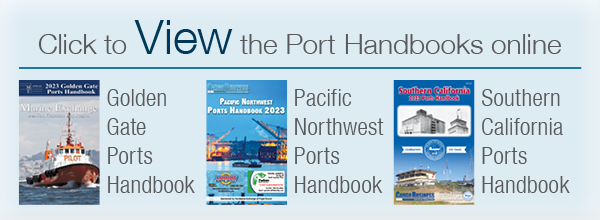|
By Anna Denecke, Associate, Blakey & Agnew
In the lead up to passage of both MAP-21 and the Fixing America's Surface Transportation (FAST) Act, much debate in Washington focused on how to maintain the solvency of the Highway Trust Fund, which is primarily supported by federal excise taxes on gasoline and diesel fuel.
Until 2008, these taxes allowed the Highway Trust Fund to meet its obligations. However, the 18.4 cent per gallon gasoline tax and 24.4 cent per gallon diesel tax have not been raised since 1993, and in the mean time, inflation and increasing fuel efficiency standards have contributed to a dwindling account balance. In recent years, the account has relied on periodic transfers from the General Fund of the Treasury to maintain a positive balance and meet obligations.
Many outside organizations, and Congress itself, admit the process of transferring General Fund dollars and finding offsets elsewhere in the federal budget is a heavy political lift at best, and economically damaging at worst. In recent years, several influential outside groups supported legislation aimed at increasing the gas and diesel taxes.
In 2015, Congressman Blumenauer (D-OR) introduced legislation that would phase in a 15 cent increase to gas and diesel taxes. Blumenauer's legislation was supported by UPS, the American Society of Civil Engineers, the American Trucking Associations (ATA), the AFL-CIO, and the U.S. Chamber of Commerce (Chamber), according to a press release issued by the Congressman's office.
However, with passage of the five-year FAST Act, there's a growing recognition among many organizations that the future of the gas tax is limited. Most experts agree that even if Congress decided to raise the gas tax by 15 cents, as suggested by Congressman Blumenauer, the Highway Trust Fund's solvency would again be an issue in the coming decade. Vehicles will become too fuel efficient for any per gallon charge to be effective. Further, the increasing popularity of electric vehicles means not all trucks and cars on the road are paying into the account, and thus, paying their fair share towards transportation network improvements.
In recent months, some transportation-minded associations are showing an interest in exploring long-term, sustainable alternatives to the gas tax. Ed Mortimer, Executive Director of Transportation Infrastructure at the Chamber, told POLITICO in October that his organization is "committed to trying to find a long-term, sustainable funding source, and that means all options are on the table."
ATA, meanwhile, has backed off of advocating for a gas tax hike and will instead push for a new proposal that has yet to be announced. The American Association of State Highway and Transportation Officials (AASHTO) periodically updates its matrix of revenue generating options, which is a popular tool used to encourage Congress to "identify long-term and sustainable funding to shore up the struggling Highway Trust Fund."
Other groups, such as the Coalition for America's
|

Gateways and Trade Corridors (CAGTC) and the Eno Center for Transportation, are asking Congress to address the lag in freight infrastructure investment through implementation of a freight-specific user-fee that would support improvements to the multimodal freight network. Such a fee would not replace a gas tax or other revenue source for general transportation and transit spending from the Highway Trust Fund. Instead, proceeds from the user-fee would be deposited into a firewalled freight trust fund and awarded to freight-specific megaprojects, across all modes, through a competitive grant program. The fee would be assessed based on the cost of shipment for all surface transportation modes and would be paid by beneficial cargo owners.
Congressman Alan Lowenthal (D-CA) introduced legislation in 2015 that, if enacted, would create a freight-specific competitive grant program. Economy in Motion: the National Multimodal and Sustainable Freight Infrastructure Act would assess a national one percent waybill fee on the transportation cost of goods. Proceeds, which the Congressman estimates would total at least $2 billion a year, would be distributed through a competitive grant and a formula program.
On September 27, 2016 Congressman Adam Smith (D-WA) introduced the Freight Infrastructure Reinvestment Act, which seeks to build on the improvements made in the FAST Act by creating freight-specific competitive grant program designed to work alongside the FAST Act's FASTLANE grant program. Similar to Lowenthal's proposal, Smith's legislation would fund this competitive grant program through a one percent fee on the cost of shipping freight cargo.
Congress too recognizes that the gas tax has a limited lifespan and that other revenue sources will need to be explored in detail in the near future. The FAST Act included $95 million dollars, over five years, for the Surface Transportation System Funding Alternatives (STSFA) grant program. STSFA provides grants to states to assist in exploring alternative revenue mechanisms to help sustain the long-term solvency of the Highway Trust Fund.
In FY2016, the Federal Highway Administration awarded $14.2 million in STSFA grants to states. Awards included a $2.1 million award to the Oregon Department of Transportation to improve the state's existing road usage charge program and $3.8 million to the Washington Department of Transportation to test the interoperability of alternative user-based revenue collection systems, among other grants.
Blakey & Agnew, LLC is a public affairs and communications consulting firm based in
Washington, DC.
|





